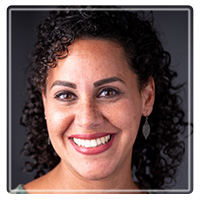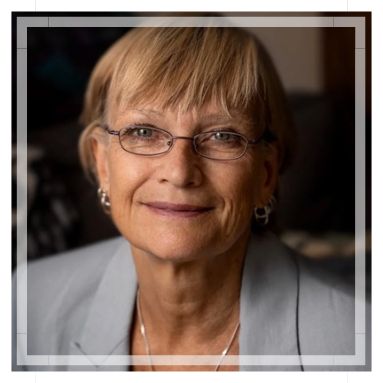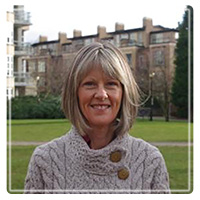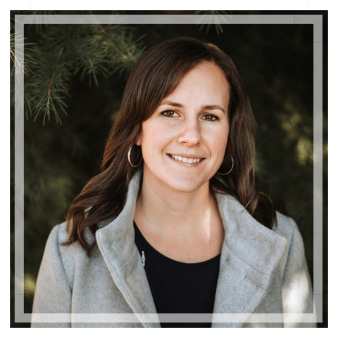
Eating Disorder Counsellor
Heather Awad, MCP, RCC
Registered Clinical Counsellor
web-based, Vancouver, British Columbia V6B 1A1 | 6047736152
If you’ve struggled with disordered eating, you are all too familiar with compulsive behavior, obsessive thoughts and a disconnect from the body. You may also have a constant need for control while at the same time feeling a frightening and exhausting loss of all control. Please know that none of this is your choice, but rather is a state of stress and overwhelm while you do your best to feel better. I have nothing but compassion for the distress that comes with food-related challenges, and you have my commitment to help you care for the difficult underlying emotions involved. Together, we will create a safe space to move towards healing and a safe relationship with food and the body.

Eating Disorder Counsellor
Roya Vojdanijahromi, MA, RCC, CCTP
Registered Clinical Counsellor
BURNABY, British Columbia V3J 0A9 |
Having an eating disorder often leads to different emotions such as sadness, anger, shame and confusion. Having an eating disorder means you are probably also struggling with other mental health issues such as anxiety and depression. That is why it is really important to work with a therapist who can not only help you with symptoms of your eating disorder, but also help you with traumas and emotional difficulties that have led to your symptoms. When working with eating disorders, my goal is to help my clients understand their eating disorder from a compassionate perspective and also heal the deeper wounds that might lie underneath their eating patterns.

Eating Disorder Counsellor
Mark Giesbrecht, MA, CT, RCC, CCC
Counselling Therapist
Virtual Online Counselling, Vancouver, British Columbia V5Z 1M9 | 604-720-0233
Eating Disorders can impact someone as negatively as any type of serious addiction. However, unlike addiction treatment plans, food must continue to play a role in your life. My basic goal is to stop further development of any eating problem you may have, and assist you in returning to a healthy lifestyle. The most successful focus is on harm reduction as an overall principle in addressing eating disorders, with the end goal of moving towards complete recovery. I also typically want to establish effective coping skills to reduce the possibility of relapse and sustain the progress you make in therapy.

Eating Disorder Counsellor
Carol Whaley, MSW, RSW
Registered Social Worker/Psychotherapist
400-601 West Broadway Avenue, Vancouver, British Columbia V5Z 4C2 | 778-320-7038
Eating Disorders develop as a way of navigating deep unresolved emotional pain and trauma. All our emotions and trauma are stored in our bodies. Working with eating disorders involves not only navigating the behavioural symptoms of disordered eating but more importantly developing a compassionate relationship to the body by connecting in, to where the emotional pain is stored. Together, with compassion and understanding we work on lifting the shame connected to body image and the external ways that has been created, then facing the deeper internal emotional issues at the root. It is possible to fully heal from disordered eating.

Eating Disorder Counsellor
Devorah Peterson, M.Ed., RCC
Registered Clinical Counsellor
Vancouver, British Columbia V6J 1Y9 | 604-807-3900
As an experienced therapist in the area of eating disorders, I have found that often the greatest healing occurs through re-connectiong with the body, developing a trusting and loving relationship with it, and discovering its wisdom. When one begins to trust that that far from being one's enemy, the body is one's constant friend and guide, one's whole experience of self can be transformed. One lives from one's own core rather than focusing on food, body image, and others' evaluations, and therefore one becomes more confident and life becomes richer and freer.

Eating Disorder Counsellor
Kevin Fleming, Ph.D.
Coach/Change Agent/Consultant
Vancouver, British Columbia V6C 1H2 | 1-877-606-6161
While most eating disorder issues are treated by cognitive behavioral methodologies or specialized outpatient/inpatient programs, Grey Matters International and the work of Kevin J. Fleming, PhD provide relief first and foremost for the brain of one suffering from an eating disorder----without giving them medication. We believe that the neural circuitries responsible for the compulsive behaviors with eating are not necessarily only a neurotransmitter issue but of overused neural networks that affect the harmonization, balance, and decisions of the whole brain. Contact kevin@kevinflemingphd.com or 877-606-6161 to learn more about this safe and effective alternative.

Eating Disorder Counselor
Olivia Mayer, MA, RCC
Registered Clinical Counsellor
Available for Online Therapy
Olivia has a passion for helping individuals struggling with eating disorders, providing support through a behavioral and trauma-informed approach. She helps clients uncover and address the underlying emotional and psychological factors contributing to their disorder while equipping them with practical strategies for recovery. Olivia’s compassionate and holistic approach focuses on creating a safe space for clients to explore their relationship with food and their bodies, empowering them to build healthier habits and a positive self-image. By integrating trauma-informed care with actionable tools, Olivia walks alongside her clients as they work toward healing, resilience, and lasting change.

Eating Disorder Counsellor
Rivkah Horowitz, MSW, RSW
Registered Social Worker
2305 west 7th avenue, Vancouver, BC, Based in Vancouver, British Columbia V6K 1Y4 | 1-604-6003533
Emotional eating: Eating is not just about the food we put in our mouth, if it was then no one would have eating disorders. There are many types of eating disorders including bulimic, anorexia and over-eaters. Treatments is based on your own individual needs. Together we will work on the underlying issues and coping strategies. Food often represents love, nurturing, comfort. Before changing our eating habits, we need to find new and better ways to find comfort. Body image and issues around control are also common themes behind eating disorders. My approach is based on cognitive therapy as well as compassion and empathy.
You Have Found Honest and Real Therapy for Food Issues in Vancouver, BC.
Are you ready to start on a new path? Thank you for visiting our British Columbia search of licensed therapists in Vancouver who specialize and have experience treating food issues such as anorexia, over eating, food aversions, orthorexia nervosa and bulimia. Food issues affect anyone, both children and adults and can impede our relationships and daily life. Counselling for help with food and eating is a vital component of healthy recovery and restoration. Find the right counselor for eating and food issues in Vancouver right now and begin your new life.
Vancouver is located in British Columbia, Canada. It has a land area of 114.97 square kilometers. The population of Vancouver is 662,248 people with 283,916 households . The population ranking for Vancouver is #8 nationally and #1 for the province of British Columbia with a density of 5492.60 people per sq km. Vancouver therapists serve postal code: V5Y.
